Menopause is a natural part of a woman’s life, but it can be challenging. It is a biological process that marks the end of a woman’s reproductive years.
It typically happens around the ages of 45 and 55. During menopause, a woman’s body stops producing estrogen, which can cause various physical and emotional symptoms. These symptoms can include hot flashes, night sweats, mood swings, fatigue and insomnia.
Know more: how kulkuf works?
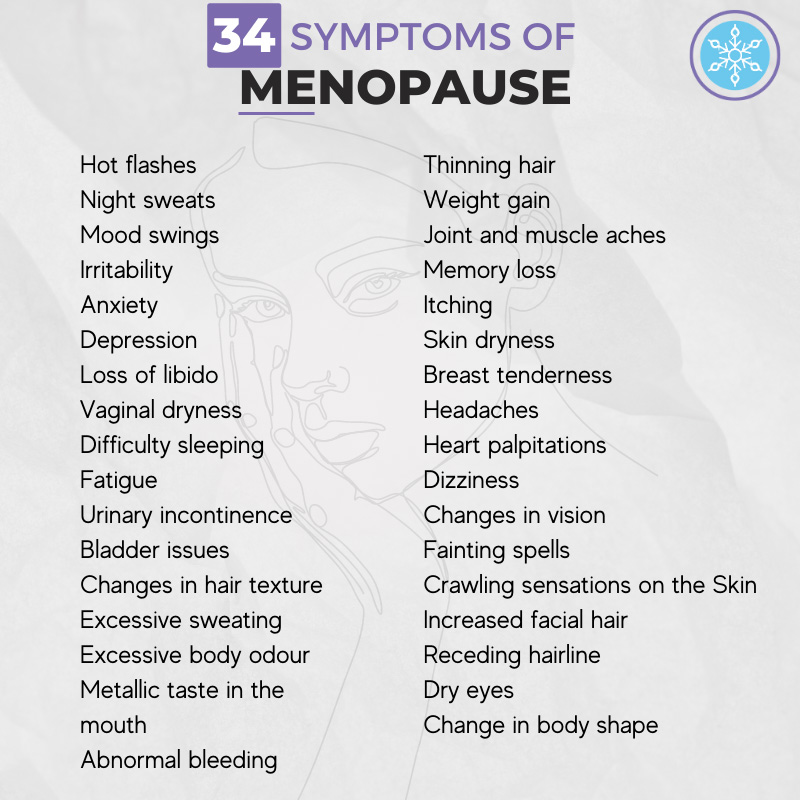
1.Hot flashes

Hot flashes are a common symptom experienced by women during menopause.
- Hot flashes are sudden feelings of warmth and flushing of the face, neck, and chest.
- They are usually accompanied by rapid heart rate, sweating, and a red, flushed face.
- They can last from 30 seconds to 10 minutes. Hot flashes occur more frequently during the day but can also happen at night, resulting in night sweats.
- Hot flashes can be triggered by stress, alcohol, caffeine, spicy foods, and certain medications.
Hot flashes can be bothersome and disruptive to daily life, but there are several treatment options available like wearing a KÜLKUF Cooling Wristband.
2. Night sweats
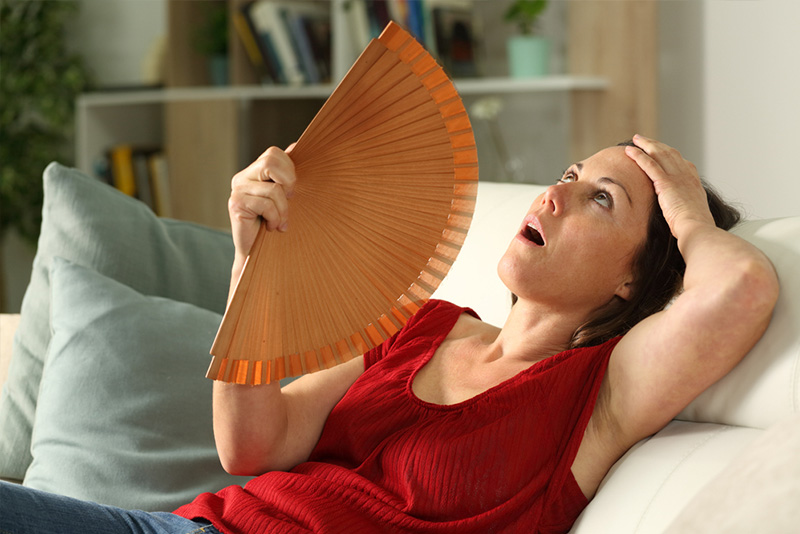
Night sweats are similar to hot flashes, but they occur at night and can cause significant sweating that may soak through clothing and bedding.
- Night sweats are a common symptom of menopause, as estrogen levels begin to decline.
- It can cause hot flashes and night sweats during the night, which can lead to sleep disturbances and feelings of exhaustion during the day.
3. Mood swings
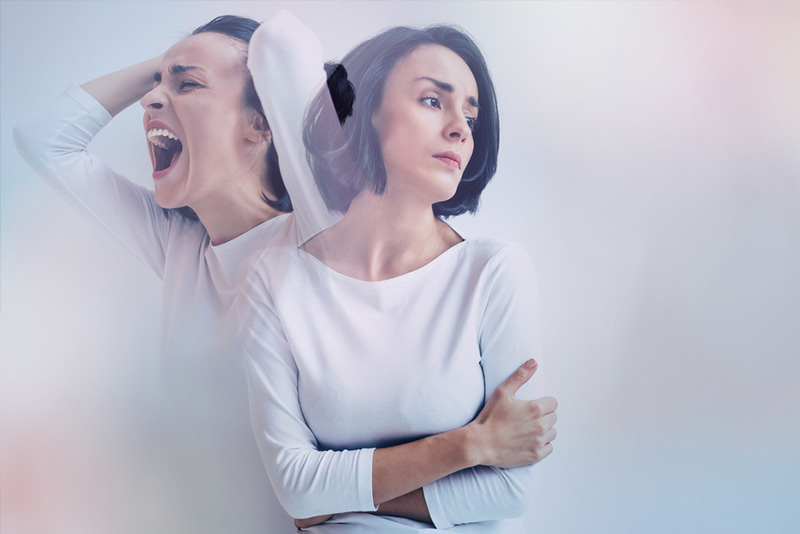
Changes in hormone levels, particularly estrogen, can affect neurotransmitters in the brain that regulate mood, leading to mood swings.
- Mood swings can range from feeling irritable and easily frustrated to feeling overwhelmed and having difficulty concentrating.
- Other symptoms of menopause that may contribute to mood swings include hot flashes, night sweats, insomnia, and fatigue.
4. Irritability
- Irritability can be caused by hormonal changes, stress, fatigue, and other physical and emotional changes that occur during this time.
- Symptoms of irritability can include feeling frustrated, having difficulty concentrating, and feeling overwhelmed.
- Getting enough rest and practising relaxation techniques such as yoga or meditation is essential.
5. Anxiety
- Anxiety can range from mild to severe.
- It is often caused by hormonal changes and can accompany other symptoms such as hot flashes, night sweats, and mood swings.
- Stress, lifestyle changes, and other physical and mental health issues can cause anxiety.
6. Depression
- Depression, a common symptom of menopause, can be caused by various factors, including hormonal changes, stress, lifestyle changes, and other physical and emotional changes.
- Women may experience various symptoms, including sadness, anxiety, irritability, difficulty concentrating, and fatigue.
- Treatment may include lifestyle changes, such as stress management, exercise, and dietary changes, as well as medications and counselling.
7. Loss of libido
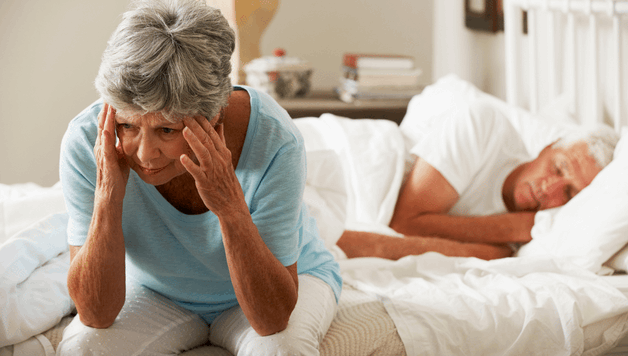
- One of the most common symptoms of menopause is a decrease in libido.
- Various factors, including hormonal changes, stress, fatigue, and medications, can cause it.
- Several ways to help manage this symptom include lifestyle changes, hormone therapy, and natural remedies.
8. Vaginal dryness
- Vaginal dryness is caused by a decrease in estrogen levels, which can lead to thinning and drying of the vaginal walls.
- Treatments for vaginal dryness include using a water-based lubricant during intercourse, using a vaginal moisturiser, and taking estrogen therapy.
9. Difficulty sleeping
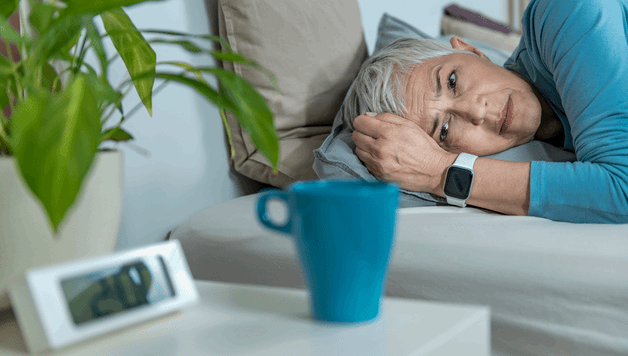
- Menopause can cause various sleep-related issues, including difficulty falling asleep and waking up too early in the morning.
- Hot flashes, night sweats, and several other symptoms can disrupt sleep.
- To help improve sleep during menopause, try to maintain a regular sleep schedule, exercise regularly, and avoid napping during the day.
10. Fatigue

- Fatigue is a common symptom of menopause and can be caused by various factors.
- Hormonal imbalances, such as decreased estrogen levels, can lead to fatigue.
- Other factors contributing to fatigue during menopause include stress, depression, anxiety, insomnia, and changes in diet and exercise habits.
11. Urinary incontinence
- Urinary incontinence is a common symptom of menopause.
- It is caused by the decrease in estrogen levels, which can weaken the pelvic floor muscles and cause the bladder to become less efficient at controlling urine flow.
- Treatment options include lifestyle changes such as avoiding caffeine, alcohol, and spicy foods and doing pelvic floor exercises to strengthen the muscles, such as kegel exercises.

Bladder issues
- Menopause can cause various bladder issues, including urinary incontinence, urinary urgency, and urinary frequency.
- Urinary urgency is the sudden, intense urge to urinate, and urinary frequency is the need to urinate more often than usual.
- These issues can be caused by hormonal changes, such as decreased estrogen levels, leading to thinning of the bladder wall and reduced bladder capacity.
- Other causes of bladder issues during menopause include bladder infections, bladder stones, and bladder tumours.
Changes in hair texture
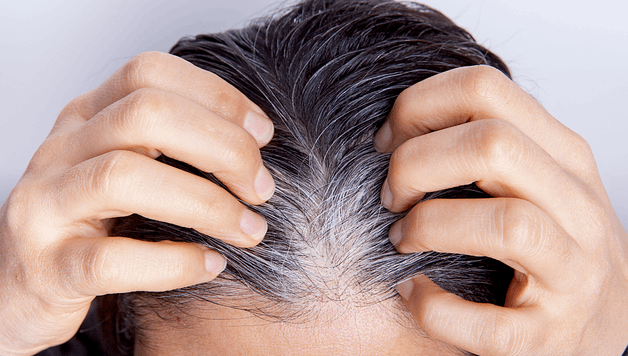
- During menopause, many women experience changes in their hair texture.
- These changes can include increased dryness, thinning, and breakage.
- Hair may become more brittle and prone to split ends. It may also become more challenging to style and manage.
- Additionally, some women may experience increased hair growth on their face, chest, and back.
Thinning hair
- Thinning hair during menopause is a common occurrence due to hormonal changes.
- During menopause, the body’s production of estrogen and progesterone decreases, which can lead to hair loss.
- Additionally, the body’s production of androgens (male hormones) increases, which can also contribute to hair loss.
- Other factors that can contribute to thinning hair during menopause include stress, nutritional deficiencies, and age-related changes in the scalp.
Weight gain
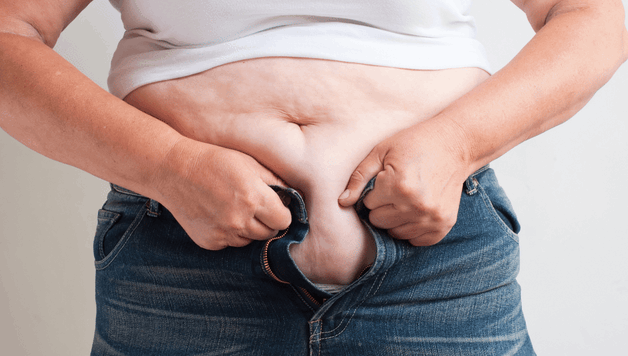
- Hormonal changes, lifestyle factors, and age-related metabolic changes cause weight gain.
- Hormonal changes during menopause can cause a decrease in muscle mass and an increase in fat mass, leading to weight gain.
- Lifestyle factors such as decreased physical activity, increased stress, and unhealthy eating habits can also contribute to weight gain.
- Age-related metabolic changes can also cause a decrease in the body’s ability to burn calories efficiently, leading to weight gain.
Joint and muscle aches
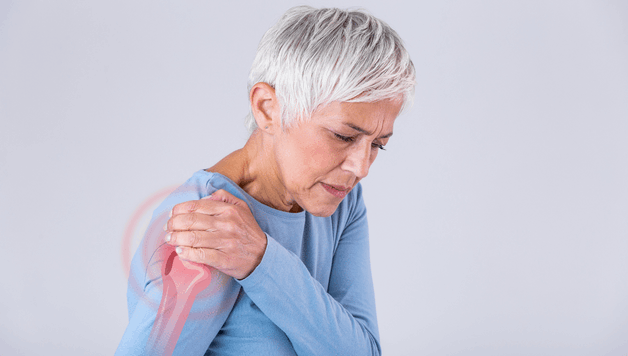
- Joint and muscle aches during menopause are daily and can be caused by various factors.
- Hormonal changes, such as decreased estrogen levels, can cause joint and muscle pain.
- Other factors, such as decreased physical activity, poor posture, and stress, can also contribute to joint and muscle pain.
Memory loss and difficulty concentrating
- Menopause can cause various cognitive symptoms, including memory loss and difficulty concentrating.
- These symptoms may be caused by hormonal changes during menopause and other factors such as stress, fatigue, and depression.
- Getting enough rest, eating a balanced diet, exercising regularly, and practising stress-relieving activities such as yoga and meditation are essential.
Itching
- Itching during menopause is a common symptom of menopause and can be caused by various factors.
- These include hormonal changes, dry skin, and changes in the body’s immune system.
- It is vital to keep the skin moisturised, use gentle cleansers, and avoid harsh soaps and detergents.
Skin dryness
- Menopause can cause a decrease in the production of estrogen, which can lead to dry skin.
- It is crucial to keep the skin hydrated by drinking plenty of water regularly.
- Additionally, using a gentle cleanser and avoiding harsh soaps can help reduce dryness.
- Plenty of fruits and vegetables can also help keep the skin hydrated.
Breast tenderness
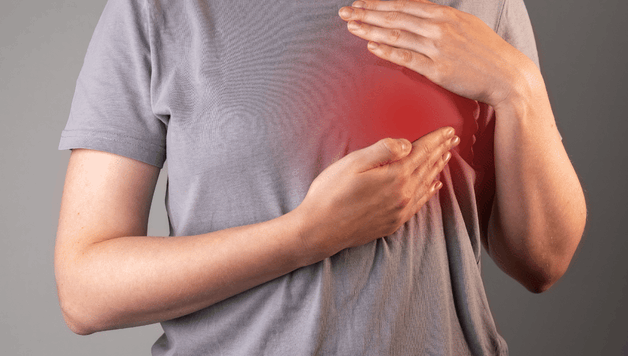
- Breast tenderness is caused by hormonal changes that occur during this time.
- The fluctuation of hormones can cause the breasts to become swollen and tender.
- It can be uncomfortable and can cause pain or discomfort. It is essential to stay hydrated and exercise regularly.
Headaches
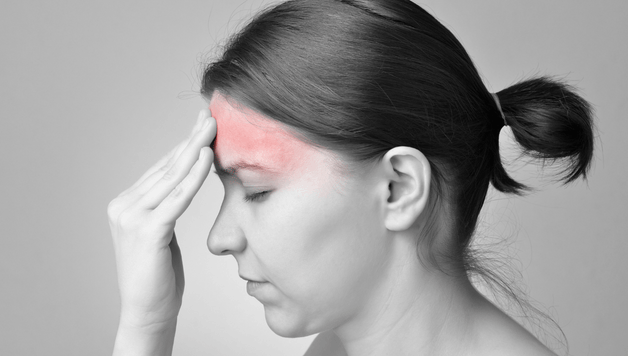
- Headaches during menopause are common and can be caused by various factors.
- Hormonal changes, stress, and lack of sleep can all contribute to headaches. Other symptoms of menopause, such as night sweats and mood swings, can also lead to headaches.
- Practising good sleep hygiene, reducing stress, and maintaining a healthy diet is essential.
Heart palpitations
- Heart palpitations during menopause are common symptoms and can be caused by various factors.
- Hormonal changes, such as fluctuating estrogen levels, can cause an increase in heart rate and palpitations.
- Stress and anxiety can also contribute to palpitations. Other potential causes include anaemia, thyroid problems, and certain medications.
Dizziness
- Dizziness during menopause is a common symptom caused by hormonal changes.
- It can be caused by low blood pressure, dehydration, or low blood sugar. Other possible causes include anxiety, stress, and anaemia.
- Treatments for dizziness during menopause include drinking plenty of water, eating a balanced diet, exercising regularly, and avoiding alcohol and caffeine.
Changes in vision
- During menopause, women may experience changes in vision, such as dry eyes, blurred vision, and difficulty seeing at night.
- Hormonal fluctuations and the natural ageing process can cause these changes.
- Additionally, women may be more prone to developing cataracts and glaucoma during menopause.
- Women need regular eye exams to monitor vision changes and ensure that any underlying conditions are identified and treated.
Fainting spells
- Fainting spells during menopause are not common, but they can occur.
- They are usually caused by a sudden blood pressure drop, which can trigger several factors, including hot flashes, dehydration, and stress.
- If you experience a fainting spell during menopause, it is vital to seek medical attention.
Excessive sweating
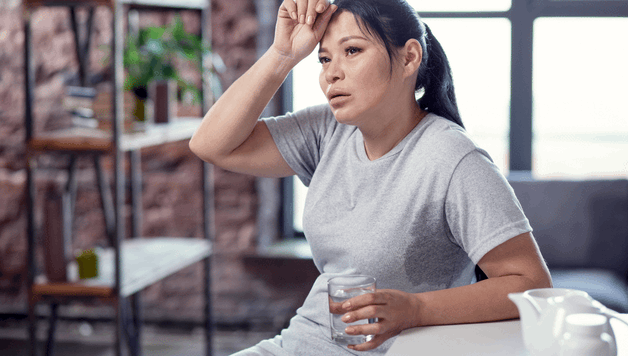
- Excessive sweating during menopause is caused by a decrease in estrogen levels, which can cause the body to overheat and sweat more than usual.
- Treatment options include lifestyle changes, such as avoiding triggers that cause sweating, wearing loose-fitting clothing, and avoiding hot environments.
- Other treatments include hormone replacement therapy, antiperspirants, and medications such as antidepressants and anticonvulsants.
Excessive body odour
- Excessive body odour during menopause can be caused by hormonal changes, which can increase sweat production.
- It is essential to practice good hygiene and wear breathable clothing to help reduce body odour.
- Additionally, avoiding spicy foods, caffeine, and alcohol can help reduce body odour.
Metallic taste in the mouth
- Hormonal changes during menopause usually cause a metallic taste in the mouth.
- Certain medications, dehydration, or a deficiency in specific vitamins and minerals can also cause it.
- To help reduce the metallic taste, try drinking plenty of water, eating a balanced diet, and avoiding acidic foods.
- Additionally, supplements such as zinc, magnesium, and vitamin B complex may help.
Abnormal bleeding
- Various factors, including hormonal imbalances, uterine fibroids, endometrial polyps, and endometrial cancer, can cause abnormal bleeding during menopause.
- It is essential to speak with your doctor if you experience any abnormal bleeding during menopause, as it can signify a more severe condition.
- Your doctor may recommend a pelvic exam, ultrasound, or other tests to determine the cause of your bleeding.
- Treatment may include hormone therapy, surgery, or other medications.
Crawling sensations on the skin
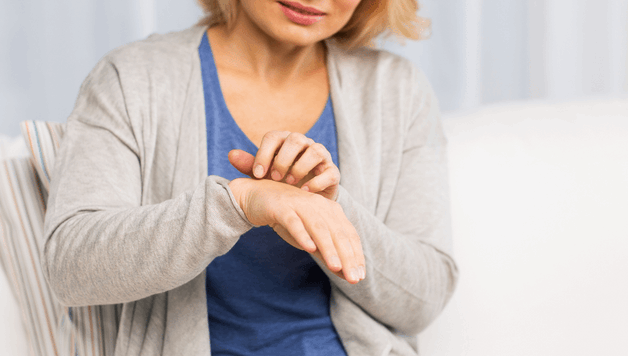
- Crawling sensations on the skin during menopause can be caused by hormonal changes.
- As estrogen levels decrease during menopause, the body may produce more histamine, which can cause itching and crawling sensations on the skin.
- Additionally, some women experience hot flashes during menopause, which can cause crawling sensations on the skin.
- Other possible causes of crawling sensations on the skin during menopause include dry skin, stress, and anxiety.
Increased facial hair
- Yes, women can experience increased facial hair during menopause.
- It is due to the hormonal changes that occur during menopause, which can cause an increase in the production of androgens in the body.
- It can lead to increased facial hair growth and other symptoms such as acne, thinning hair, and irregular menstrual cycles.
Receding hairline
- Menopause does not directly cause a receding hairline. However, it can be a contributing factor.
- During menopause, hormonal changes can cause hair loss, including a receding hairline.
- Stress, poor nutrition, and other environmental factors can also contribute to hair loss.
Dry eyes
- Dry eyes during menopause are common symptoms caused by hormonal changes.
- It can result from a decrease in the production of tears, which can lead to irritation, redness, and a burning sensation.
- Using lubricating eye drops and avoiding smoke and other irritants is essential.
- Additionally, wearing sunglasses to protect your eyes from the sun and wind can help reduce dryness.
Change in body shape
- During menopause, women may experience changes in their body shape due to hormonal changes.
- These changes can include increased body fat, especially around the abdomen, hips, and thighs, and decreased muscle mass.
- It can lead to a decrease in overall body size and shape.
- Additionally, due to the decrease in estrogen levels, women may experience a reduction in breast size and bone density, leading to an increased risk of osteoporosis.
What can help?
Most women do not experience all 34 symptoms associated with menopause. However, hot flashes can be disruptive enough on their own. Various treatments and lifestyle changes can be implemented.
Hormone replacement therapy, vaginal estrogen, antidepressants, avoiding alcohol, spicy foods, and caffeine, stopping smoking, dressing in layers, carrying gentle cleansing wipes, getting regular exercise, learning relaxation techniques, and psychotherapy are all potential methods of relief.
These steps can help women manage their menopause symptoms and maintain their quality of life.









